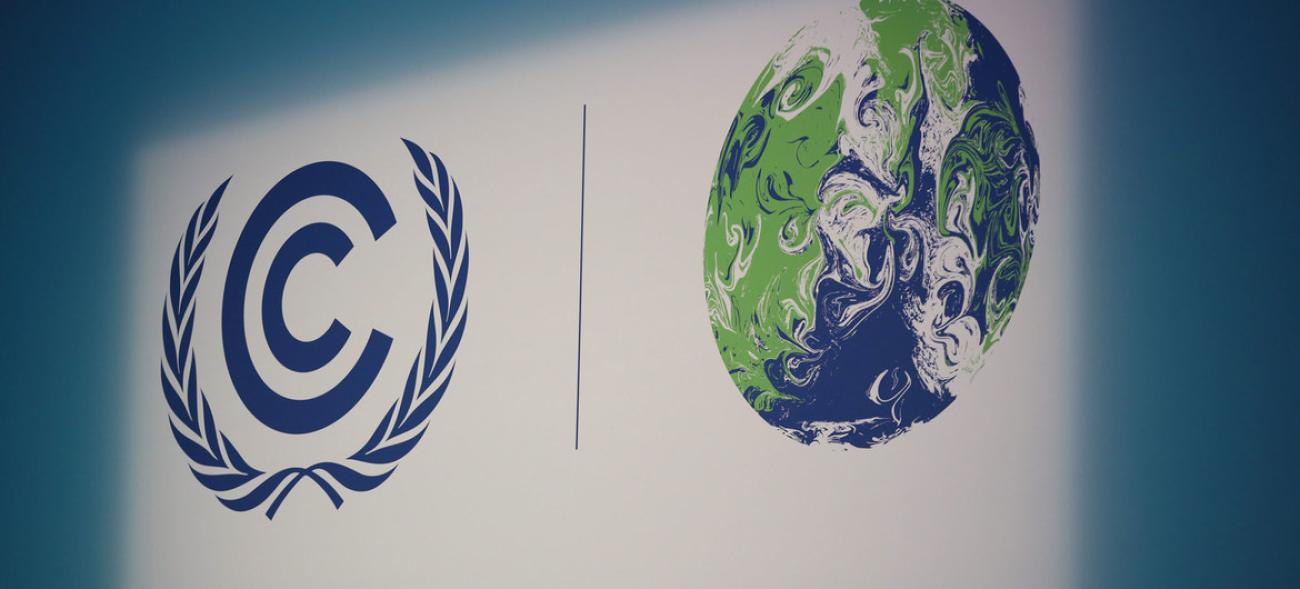COP26: 'We are digging our own graves’ – Guterres brings stark call for climate action to Glasgow

UN chief sent a stark message to the international community. “We are digging our own graves”, he said, referring to the addiction to fossil fuels.
As the World Leaders Summit opened on day two of COP26, UN chief António Guterres sent a stark message to the international community. “We are digging our own graves”, he said, referring to the addiction to fossil fuels which threatens to push humanity and the planet, to the brink, through unsustainable global heating.
Secretary-General António Guterres took the podium with a blunt opening message: “The six years since the Paris Climate Agreement have been the six hottest years on record. Our addiction to fossil fuels is pushing humanity to the brink”
“We face a stark choice. Either we stop it - or it stops us”, he added, delivering five key messages to world leaders.
1. It’s time to say ‘enough’
“Enough of brutalizing biodiversity, killing ourselves with carbon, treating nature like a toilet, burning, and drilling and mining our way deeper.”
“We are digging our own graves”, Mr. Guterres said, adding that our planet is changing before our eyes from melting glaciers, to relentless extreme weather events.
He reminded that sea-level rise is double the rate it was 30 years ago, that oceans are hotter than ever, and that parts of the Amazon Rainforest now emit more carbon than they absorb.
“Recent climate action announcements might give the impression that we are on track to turn things around. This is an illusion”, he stated, referring to the latest report on national plans to reduce emissions, known as NDCs, which indicates that even when fully met, the result would still condemn our world to a “calamitous” 2.7- degree increase.
“And even if the recent pledges were clear and credible - and there are serious questions about some of them - we are still careening towards climate catastrophe. So, as we open this much anticipated climate conference, we are still heading for climate disaster”, he emphazised.
2. Keeping the 1.5 degrees goal alive
The UN chief called for greater ambition on mitigation and immediate concrete action to reduce global emissions by 45 per cent by 2030; an effort that should be led by developed countries.
“G20 countries have a particular responsibility as they represent around 80 per cent of emissions”, he said, making clear however, that emerging economies must also go the extra mile.
“We need maximum ambition – from all countries on all fronts – to make Glasgow a success”, he added.
Mr. Guterres urged nations to build coalitions to create the financial and technological conditions to accelerate decarbonization of the economy and the phase out of coal.
Also, referring to a key negotiating issue during this COP26, the Secretary-General said that countries must revisit their national climate plans and policies, not every five years, but every year, if commitments fall short by the end of COP26.
“There is a deficit of credibility and a surplus of confusion over emissions reductions and net zero targets, with different meanings and different metrics”, he said, announcing the establishment of a Group of Experts to propose clear standards to measure and analyse net zero commitments from non-State actors.
3. We must do more to protect vulnerable communities
Over the last decade, nearly four billion people suffered climate-related disasters, and the devastation will only grow, said the UN chief.
Mr. Guterres highlighted that adaption measures work, and that early warning systems as well as climate-smart agriculture and infrastructure, save lives and jobs.
“All donors must allocate half their climate finance to adaptation. Public and multilateral development banks should start as soon as possible”, he said.
4. COP must be a moment of solidarity
The UN chief reiterated his call for a $100 billion climate finance commitment in support of developing countries, to become a reality.
He said delivering on that promise made at COP15 in Copenhagen, was critical to restore trust and credibility, but beyond that, developing countries need far greater resources to fight COVID-19, build resilience and pursue sustainable development.
“Those suffering the most – namely, Least Developed Countries (LDCs) and Small Island Developing States (SIDS) – need urgent funding. More public climate finance. More overseas development aid. More grants. Easier access to funding”, he urged.
5. Build on progress
A number of countries have made credible commitments to net zero emissions by mid-century, may have pulled the plug on international financing of coal, and over 700 cities are leading the way to carbon neutrality, he said.
The Secretary-General said the private sector is also waking up and building new alliances to catalyse change.
“The climate action army - led by young people - is unstoppable. They are larger. They are louder. And, I assure you, they are not going away. I stand with them”, he said.
Mr. Guterres warned that we are fast approaching tipping points that will trigger escalating feedback loops of global heating, but investing in the net zero, climate-resilient economy, will create feedback loops of its own — virtuous circles of sustainable growth, jobs and opportunity.
“On behalf of this and future generations, I urge you: Choose ambition. Choose solidarity. Choose to safeguard our future and save humanity”, he concluded.
















